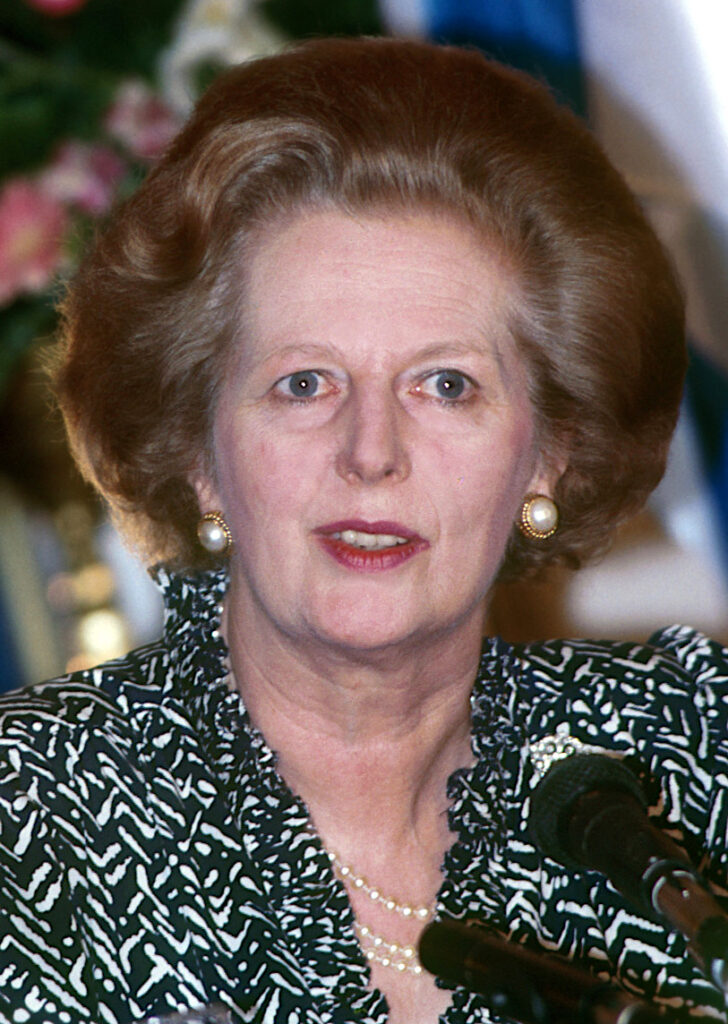
Ah, the 1970s. Often stereotyped by disco balls, bell-bottoms, and a certain leisure suit aesthetic, this decade was far more than just a fashion statement. In the 21st century, historians increasingly view the 1970s as a “pivot of change” in world history, a period where the economic stability of the postwar boom began to unravel, leading to unprecedented global shifts. It was a time when the world population swelled from 3.7 to 4.4 billion, witnessing profound transformations across continents and cultures, leaving an indelible mark on the geopolitical tapestry we know today.
From the frosty détente of the Cold War superpowers attempting to lessen the chances of nuclear conflict, to the explosive rise of new political ideologies and the tragic toll of natural disasters, the Seventies truly reshaped our understanding of stability, power, and humanity. It was a period defined by frequent coups, domestic conflicts, and civil wars, alongside various political upheavals rooted in decolonization and the enduring global struggle between NATO, the Warsaw Pact, and the Non-Aligned Movement. Many regions, including Southeast Asia, the Middle East, Latin America, and Africa, endured high-intensity conflicts that redefined their futures.
This wasn’t just a decade of political and economic flux; it was a crucible where social progressive values continued to grow, giving rise to new opportunities for women in industrialized societies, even as traditional gender roles for men as breadwinners largely persisted. The world was interconnected in ways previously unimaginable, revealing the deep interdependence of economies in a post-World War II era. Join us as we journey through 12 pivotal moments and figures that truly defined the 1970s, showcasing how yesterday’s headlines became the foundation for today’s realities, and how many aspects of this turbulent era have, in their original forms, faded into history.

1. **The End of the Vietnam War and the Fall of Saigon: A Vanished Conflict**The early 1970s saw the United States still entangled in the arduous Vietnam War, a conflict that had deeply divided the nation and cast a long shadow over global politics. The New York Times’ leaks regarding America’s involvement further intensified political pressure, pushing the country toward a resolution. This immense public and political pressure ultimately led to America’s withdrawal from the war in 1973, signaling a significant shift in global power dynamics and setting the stage for the conflict’s dramatic conclusion.
The final act came with the Fall of Saigon in 1975, a momentous event that symbolized the unconditional surrender of South Vietnam on April 30, 1975. The poignant images of evacuations of South Vietnamese citizens underscored the human cost of the protracted conflict. It was a profound moment that marked the end of an era, closing a chapter on one of the most contentious wars in modern history and fundamentally altering the geopolitical landscape of Southeast Asia.
The year following the fall of Saigon, Vietnam was officially declared reunited, concluding a conflict that had spanned decades and touched countless lives. This resolution not only brought an end to a long-standing war but also triggered a reevaluation of foreign policy and military intervention worldwide. The end of the Vietnam War stands as a defining moment of the 1970s, illustrating the complex interplay of international relations, domestic politics, and the enduring quest for self-determination.

2. **The 1973 Oil Crisis and the Birth of Stagflation: A Vanished Economic Paradigm**The global economy experienced a jarring shock in the 1970s, primarily driven by the 1973 oil crisis. This crisis was precipitated by oil embargoes enacted by the Organization of Arab Petroleum Exporting Countries (OAPEC), sending ripples of financial instability throughout the developed world. It served as a stark reminder of the interconnectedness of global resources and political actions, dramatically altering everyday life and industrial operations.
The most significant consequence of this crisis was the unprecedented phenomenon of stagflation – a crippling combination of economic stagnation, high inflation, and high unemployment that defied traditional economic theory. This economic upheaval marked a critical turning point, challenging the prevailing Keynesian economic theory that had guided policy for decades. The inability of existing models to effectively address stagflation ushered in a new era of economic thought and policy-making.
The crisis initiated a profound political and economic trend: the gradual replacement of Keynesian economic theory with neoliberal economic theory. This shift was profound, with the first neoliberal government coming to power following the 1973 Chilean coup d’état. The 1973 oil crisis thus didn’t just impact gas prices; it fundamentally reshaped global economic philosophy and governance, setting the stage for decades of market-driven policies and transforming the world’s approach to national and international finance.
3. **Watergate and Nixon’s Resignation: A Vanished Political Trust**American politics, and indeed global perceptions of democratic governance, were rocked to their core by the Watergate scandal. This complex political scandal, involving a break-in at the Democratic National Committee headquarters and subsequent cover-up attempts, began to unravel in the early 1970s, steadily eroding public trust in government and its highest office. The scandal exposed deep-seated issues of executive power and accountability.
The crescendo of the scandal arrived on August 9, 1974, when U.S. President Richard Nixon, facing imminent charges for impeachment, made the unprecedented decision to resign from office. This moment was visually cemented in history by photographs of Nixon doing the V-for-Victory sign as he departed the White House, a poignant and complex symbol for a presidency ending in disgrace. His resignation marked the first and only time a U.S. president has left office in such circumstances.
Nixon’s departure left an indelible scar on the American political psyche, prompting widespread introspection about the checks and balances of power. The legacy of Watergate led to significant reforms in government ethics and campaign finance, and fostered a new era of investigative journalism. It stands as a stark testament to the principle that no one, not even the President, is above the law, and marked a profound moment where political trust, once taken for granted, was profoundly shaken and in many ways, diminished.
Read more about: 12 Defining ’70s Moments That Shaped Our World (And What Vanished Along The Way!)

4. **The Rise of Margaret Thatcher and Neoliberalism: A Vanished Political Landscape**The political currents in the Western world during the 1970s were characterized by the continued growth of social progressive values that had taken root in the previous decade, notably an increasing political awareness and economic liberty for women. However, alongside this social evolution, a significant ideological shift was brewing in the economic and political spheres, particularly in the United Kingdom, where the 1979 election brought about a monumental change in leadership and philosophy.
This election resulted in the decisive victory of the Conservative leader, Margaret Thatcher, who ascended to become the first female British Prime Minister. Her premiership marked a profound departure from the post-war consensus, ushering in an era of radical economic reforms. Thatcher’s government wasted no time in initiating a neoliberal economic policy, fundamentally reshaping the country’s approach to governance and market dynamics. This included a vigorous agenda to reduce government spending, which had become a hallmark of the previous decades of social democratic rule.
Crucially, Thatcher’s policies also aimed at significantly weakening the power of trade unions, which had long been a formidable force in British industrial relations, and promoting widespread economic and trade liberalization. This was a direct challenge to the established order and a clear signal of a new political and economic philosophy taking hold across industrialized nations. The rise of Margaret Thatcher thus symbolized the beginning of a new political landscape, one that moved away from Keynesian ideals and embraced a more market-oriented, less interventionist state, a philosophy that would define much of the global economy for decades to come.
Read more about: 12 Defining ’70s Moments That Shaped Our World (And What Vanished Along The Way!)

5. **The Iranian Revolution of 1979: A Vanished Monarchy, a New Global Force**The political landscape of the Middle East, already a region prone to volatility, was irrevocably altered by the Iranian Revolution of 1979. This seismic event saw the overthrow of the autocratic, pro-Western monarchy under Shah Mohammad Reza Pahlavi, who had ruled Iran with Western backing for decades. The Shah’s regime, despite its modernizing efforts, faced widespread discontent due to its authoritarian nature, perceived corruption, and alignment with Western powers.
In its place, the revolution established a theocratic Islamist government under the charismatic and austere leadership of Ayatollah Ruhollah Khomeini. This transformation was not merely a change in government; it was a fundamental reordering of Iranian society, politics, and its international posture. The new Islamic Republic declared itself overtly hostile to both Western democracy and what it termed “godless communism,” introducing a new and potent ideological force onto the global stage, one that challenged the existing Cold War binaries.
The revolution’s immediate aftermath was marked by growing distrust between the new Iranian leadership and Western powers, culminating in the Iran hostage crisis on November 4, 1979. During this crisis, 66 diplomats, predominantly from the United States, were held captive for an agonizing 444 days, further solidifying Iran’s adversarial relationship with the West. The Iranian Revolution thus represents a pivotal moment in the 1970s, signaling the vanishing of a traditional monarchy and the emergence of a radical new political and religious ideology that would profoundly impact global affairs for generations.

6. **The Cambodian Genocide and the Khmer Rouge: A Vanished Society**Amidst the larger conflicts of Southeast Asia, the Cambodian Civil War, which began in 1967, reached its devastating conclusion in 1975. This conflict ended with the Khmer Rouge, a communist organization led by Pol Pot, seizing control and establishing Democratic Kampuchea. On April 17, 1975, Pol Pot’s forces captured Phnom Penh, the capital, just two years after America had ceased its bombings of their positions, marking the beginning of one of the 20th century’s most horrific humanitarian crises.
Upon seizing power, the Khmer Rouge initiated a radical social experiment aimed at creating an agrarian communist society, forcibly emptying cities and relocating populations to clear jungles and rural communes. This radical transformation was accompanied by a brutal purge against anyone perceived as a threat to their ideology. Buddhist priests and monks, individuals who spoke foreign languages, anyone with an education, or even those who wore glasses, were systematically targeted, tortured, or executed.
The scale of the atrocities committed by the Khmer Rouge was staggering, resulting in what became known as the Cambodian genocide, claiming the lives of as many as 3 million people between 1975 and 1979. This horrific period abruptly ended when Vietnam invaded the country at the start of 1979, overthrowing the Khmer Rouge and installing a satellite government. This intervention, in turn, provoked a brief but furious border war with China in February of that year. The Cambodian genocide stands as a chilling testament to the extreme ideologies of the 1970s and the complete vanishing of a vibrant society under a tyrannical regime.
Beyond the dramatic geopolitical shifts and economic quandaries, the 1970s also quietly ushered in technological marvels, redefined international alliances, and delivered unforgettable social and cultural moments that continued to shape the world long after the decade concluded. It was a time when the seeds of our digital future were sown and global interdependencies became ever clearer, sometimes through peace, sometimes through conflict, and often through the sheer force of collective human experience.

7. **The Dawn of the Digital Age: Microprocessors and Computing**While bell-bottoms and platform shoes dominated the fashion scene, a far more profound, albeit less visible, revolution was brewing in the realm of technology. The 1970s stands as an era of incredible scientific and technological advances, fundamentally reshaping our relationship with information and computation. Before this decade, computers were often relegated to large, specialized rooms, operating as rudimentary, spacious machines that were largely inaccessible to the common person.
Then came the Intel 4004 in 1971, the world’s first commercial microprocessor, a true game-changer that condensed a central processing unit onto a single integrated circuit. This tiny chip marked the pivotal moment when computing units began their profound transformation. Suddenly, the impossible seemed within reach: portability and home accessibility for devices that once required entire rooms to operate. This innovation laid the groundwork for the personal computer revolution that would truly take off in the following decades, but its genesis was undeniably in the ’70s.
It wasn’t just about microprocessors; the decade was a hotbed of scientific discovery across the board. In the field of physics, for instance, the 1970s saw the crucial consolidation of quantum field theory. This was largely thanks to the confirmation of the existence of quarks and the detection of the first gauge bosons beyond the photon, such as the Z boson and the gluon, all integral components of what was famously christened in 1975 as the Standard Model of particle physics.
From the first commercial microprocessor to the validation of fundamental particles, the ’70s were a fascinating blend of practical innovation and theoretical breakthrough. These advancements, initially complex and niche, quietly but powerfully redefined what was possible. They started us on a trajectory that continues to accelerate, demonstrating how yesterday’s lab curiosities become tomorrow’s everyday necessities.
Read more about: A Few Influential Events of the ’70s

8. **Détente’s Triumph and Tribulation: The Camp David Accords**The Middle East of the 1970s was a region frequently at the epicenter of international tensions, often witnessing volatile conflicts that captivated global attention. The decade began with an initial surge in violence, notably when Egypt and Syria launched the Yom Kippur War against Israel in October 1973, seeking to reclaim territories lost in the 1967 conflict. This surprise attack led to heavy losses for the Israelis before they ultimately rallied, pushing back both Egyptian and Syrian forces and even crossing the Suez Canal.
However, amidst this backdrop of persistent conflict, a remarkable shift in international relations occurred late in the decade, showcasing the potential for dialogue even between long-standing adversaries. This pivotal moment came to fruition on September 17, 1978, with the signing of the Camp David Accords. These historic agreements were brokered by U.S. President Jimmy Carter between Israeli Prime Minister Menachem Begin and Egyptian President Anwar Sadat at Camp David, the presidential retreat in Maryland.
The Accords laid the foundation for the 1979 Egypt–Israel Peace Treaty, a landmark achievement that fundamentally altered the dynamics of the Arab-Israeli conflict. It was the first peace treaty between Israel and an Arab nation, directly addressing outstanding disputes between the two countries. The world watched as former enemies, Menachem Begin and Anwar Sadat, shook hands, symbolizing a glimmer of hope for peace in a turbulent region.
Such a monumental act of reconciliation did not go unrecognized; Sadat and Begin were jointly awarded the Nobel Peace Prize in 1978 for their courageous efforts. Yet, the path to peace was fraught with internal challenges. Sadat’s bold actions, though globally lauded, were not universally accepted within the Arab world, ultimately leading to his tragic assassination in 1981, a somber reminder of the profound complexities and divisions inherent in the pursuit of peace.
9. **China’s Re-emergence: From Isolation to Opening**For decades, the People’s Republic of China had largely remained an enigmatic and isolated nation on the global stage, largely due to Cold War politics and its own internal Cultural Revolution. The 1970s, however, would witness a dramatic re-orientation of China’s international relations, a seismic shift that profoundly reshaped global geopolitics. Its recognition by the United Nations, replacing Taiwan, was just the beginning of its re-entry into the global conversation.
A pivotal moment occurred in 1971 when U.S. President Richard Nixon’s National Security Advisor, Henry Kissinger, made secret visits to Beijing, paving the way for Nixon’s groundbreaking trip in 1972. This historic visit, immortalized by images of Nixon and Premier Zhou Enlai toasting, began the process of restoring relations between the two countries after decades of estrangement. Although formal diplomatic ties wouldn’t be established until 1979, the ice had been broken, creating a new strategic dynamic in the Cold War.
The year 1976 proved to be another turning point for China. Both Mao Zedong and Zhou Enlai, the titans of the Chinese revolution, passed away. This double loss marked the effective end of the tumultuous Cultural Revolution and ushered in a new era for the country. After a brief period under Mao’s chosen successor, Hua Guofeng, Deng Xiaoping emerged as China’s paramount leader, ready to steer the nation in a fundamentally different direction.
Deng Xiaoping wasted no time in initiating a bold agenda to shift China towards market economics, moving away from the ideologically driven policies that had defined the Maoist era. His pragmatic approach aimed to modernize China and integrate it more fully into the global economy. This transformative vision was further solidified by Deng Xiaoping’s own visit to the United States in 1979, signaling China’s genuine commitment to an outward-looking future and leaving an enduring legacy that continues to define China’s trajectory today.
Read more about: The ’70s Roared: 14 Loud & Proud Moments That Defined a Decade of Unprecedented Global Change

10. **The Soviet Invasion of Afghanistan: Détente’s Demise**The 1970s had largely been characterized by a policy of détente between the world’s two superpowers, the United States and the Soviet Union. This shift from the bellicose confrontations of previous decades promoted the idea that global problems could be resolved through negotiation rather than escalating conflict. With the Soviet Union possessing the largest armed forces and nuclear arsenal, the pursuit of lessening tensions was a critical component of international stability. However, this uneasy truce was shattered with a swift and decisive action towards the close of the decade.
On December 27, 1979, the Soviet Union launched a full-scale invasion of Afghanistan, marking the beginning of the protracted Soviet–Afghan War. Soviet forces rapidly deployed, overthrowing the existing Afghan communist leader, Hafizullah Amin, and installing a more compliant regime. This military intervention was ostensibly to support the communist government against rising insurgent groups, but it was seen by many in the West as a blatant act of expansionism.
The invasion abruptly and unequivocally ended the policy of détente that had defined much of the 1970s. The United States, under President Jimmy Carter, responded with strong condemnations, including boycotting the 1980 Moscow Olympics and imposing sanctions. This renewed a period of heightened geopolitical rivalry and distrust, effectively reigniting the Cold War tensions that détente had aimed to quell. The illusion that world problems could be resolved solely at the negotiating table was dramatically dispelled.
The Soviet occupation of Afghanistan would stretch into the next decade, becoming a draining and costly quagmire for the Soviet empire, often referred to as “Russia’s Vietnam.” It fundamentally reshaped global alliances, fueled regional instability, and became a crucial factor contributing to the eventual collapse of the Soviet Union. This singular event at the tail end of the 1970s cast a long shadow, defining the challenges and conflicts of the decade that followed.

11. **Shake Your Groove Thing: The Disco Explosion**Amidst the heavy political and economic headlines of the 1970s, a vibrant, pulsating cultural phenomenon emerged from the underground and exploded onto the global stage: disco. This wasn’t just a musical genre; it was a subculture that, for a glorious mid-to-late period of the decade, captured the collective imagination and defined an entire lifestyle. Its peak coincided with a need for escapism and communal joy, offering a dazzling counterpoint to the decade’s pervasive anxieties.
Disco clubs, with their glittering mirror balls, flashing lights, and booming basslines, became sanctuaries of self-expression. People donned their most glamorous attire—think sequined jumpsuits, wide-collared shirts, and platform shoes—and flocked to dance floors to “shake their groove thing.” It was a cultural revolution that celebrated movement, energy, and freedom, providing a euphoric release from the everyday. The sound, characterized by its infectious four-on-the-floor beat, orchestral arrangements, and soaring vocals, was designed to make you move.
Crucially, disco fostered an environment of inclusivity. It offered a space where diverse communities, particularly LGBTQ+ individuals, racial minorities, and women, found acceptance and celebrated their identities. The dance floor was a melting pot, and for a time, everyone was welcome to join the party. It challenged social norms and brought people together in a shared experience of pure, unadulterated fun, a stark contrast to the political divisions playing out elsewhere.
Though the disco craze eventually faded and faced a notorious backlash at the end of the decade, its cultural imprint is indelible. Its influence permeated fashion, film, and, of course, music, laying groundwork for future dance and electronic genres. The disco explosion of the 1970s remains a vivid, joyful testament to the power of music and dance to transcend societal pressures and bring people together.

12. **The Tragedy of Jonestown: A Utopian Dream Turned Nightmare**While many celebrated the social advancements of the 1970s, the decade also bore witness to profound human tragedies that exposed the darker side of communal living and charismatic leadership. One such horrific event was the Jonestown Massacre in November 1978, a stark and chilling reminder of how quickly utopian ideals can devolve into unimaginable horror. It began with the Rev. Jim Jones, leader of the People’s Temple, who guided several hundred of his followers from California to create a self-sufficient, purportedly Marxist commune deep in the Guyanese jungle, which they named Jonestown.
The visit took a catastrophic turn when, as the visitors and several defectors attempted to depart Guyana together at the local airport, they were ambushed and shot by Jones’s guards. Congressman Ryan was tragically among those killed, marking the only time in U.S. history that a sitting congressman has been assassinated in the line of duty. Following this bloody confrontation, a demented Jim Jones issued a chilling order to all remaining commune members: commit mass suicide.
What unfolded next was a scene of unspeakable horror. The people of Jonestown, under duress or through misguided loyalty, drank, or were forced to drink, cyanide-laced fruit punch, infamously known as “Flavor Aid.” The aftermath revealed over 900 dead bodies, approximately one-third of whom were children, with Jones himself found dead from a gunshot wound. Multiple units of the United States military were organized and mobilized, dispatched to Guyana to recover the deceased, a grim and unprecedented task.
After rejections from the Guyanese Government for the United States to bury the Jonestown dead in Guyana, U.S. military personnel were then tasked to prepare and transport the human remains from Guyana for burial in the USA, a harrowing logistical challenge. The U.S. General Accounting Office later detailed an approximate cost of $4.4 million in taxpayer dollars for Jonestown’s clean-up and recovery operation expenses. Jonestown remains a haunting symbol of the dangers of cults and unchecked power, a stark and enduring lesson from a decade defined by radical shifts and profound human experiences.
Indeed, the 1970s was a true crucible of change, a decade far richer and more complex than its pop-culture stereotypes suggest. From the quiet revolution of microprocessors to the earth-shattering geopolitical realignments in the Middle East and Asia, and from the vibrant energy of disco to the profound tragedy of Jonestown, this era was a testament to humanity’s capacity for both remarkable innovation and devastating error. It carved out a unique space in history, revealing the intricate interdependence of economies and societies, setting the stage for the world we inhabit today, and showing us that some vanishings leave indelible marks, forever etched into the collective memory.




